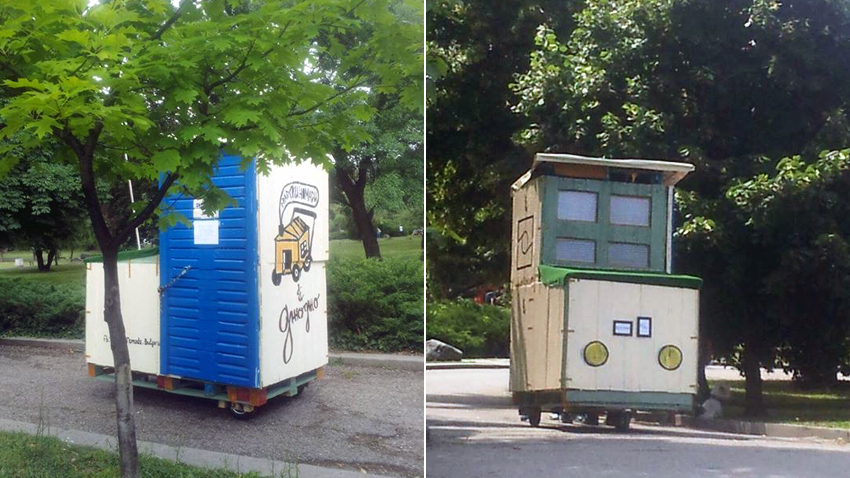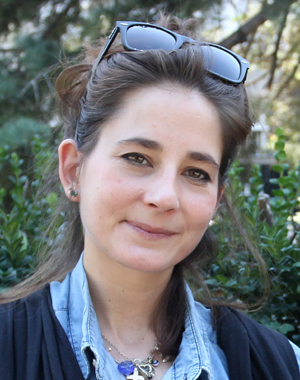We meet them in the street every day, the homeless people. They rummage in garbage bins and spend their nights in subways and public gardens dressed in torn and dirty clothes. When we notice them we start questioning the state of our society, and most often we ask ourselves what has forced these people of working age to neglect their lives to such an extent.
We find some answers in a poll conducted by volunteers in the project "Urban Nomads" among dozens of homeless people in Sofia. Living in the streets in Bulgaria we daily see people who fell victim to circumstances during the transition period. None of them was born without a home, but because of property frauds, family or health problems they found themselves without any support. Paradoxical are the results of the survey, according to which about a quarter of homeless people have a university degree and the majority have accumulated years of service in the already defunct factories and enterprises. However, on very rare occasions do some of them receive any benefits or pension from the state. Over the past 25 years the majority of these people have lost the battle for justice and human dignity.
"In Bulgaria regarding homelessness it comes to people who do not live on the street by choice, so they would be willing to start any job, only to change their lives," says Mia Agova, one of the initiators of the Urban Nomads project. Along with a group of like-minded individuals, she has set herself the goal to improve the living conditions of these people by building small mobile homes, and helping them to solve their main problem with maintaining personal hygiene and washing clothes.

The first mobile home is now a fact. It is built from materials left close to garbage bins in Sofia by local residents. The cost is about 150 euros, but although modest, the home has already changed the life of its owner Bobby who even managed to find a job. According to Mia Agova, the idea to start the Urban Nomads initiative came after random encounters between people who helped with food, clothes and medicines to people without shelter. Mia Agova tells us more:
 “We decided to come together and try to help in a broader and more organized way. We applied for funding with the Norwegian fund "For the Earth". Our project was approved and funded by a small amount, which helped us to start working. With the allocated € 1000 we managed to make a mobile house from waste materials for a homeless man from Sofia. We purchased two carts for transporting the collected waste and we made two films representing the lives of the people we support. I find deep meaning in our initiative and I want to devote myself to social assistance. Among homeless people there are all kinds of people. I know a few of them whom I call "free people" who have chosen an alternative lifestyle, thus opposing the system. They are very intelligent, but constitute a very small group of people living on the street.”
“We decided to come together and try to help in a broader and more organized way. We applied for funding with the Norwegian fund "For the Earth". Our project was approved and funded by a small amount, which helped us to start working. With the allocated € 1000 we managed to make a mobile house from waste materials for a homeless man from Sofia. We purchased two carts for transporting the collected waste and we made two films representing the lives of the people we support. I find deep meaning in our initiative and I want to devote myself to social assistance. Among homeless people there are all kinds of people. I know a few of them whom I call "free people" who have chosen an alternative lifestyle, thus opposing the system. They are very intelligent, but constitute a very small group of people living on the street.”
From the research conducted, it is clear that 24% of the homeless have higher education. Mainly these are men aged 50 and more. They were left homeless because they have been deceived, mainly in the 1990 and their homes were taken from them via criminal activities. Others were left homeless after divorce or other family problems. Among outcasts there is a significant number of people with mental health problems, explains Mia Agova.
“When we asked them about their goals in life, almost all of them answered that they dream of finding a job one day and living in their own home. Often they yearn even for a friendly greeting or a word with someone to feel noticed by society. After meeting us they asked us to mediate in finding employment. It even happened to a friend of ours among the homeless. We found for him employment in a tourist center in the Rhodope Mountains. Now he works as a baker in the oven for traditional Bulgarian bread, demonstrating his craft in front of tourists. He already has his own home and enjoys the respect of his two daughters, which he had not met for years. It is proof that with a little help the homeless could start a new life. So far the biggest problem in finding a job for these people is the lack of conditions for maintaining hygiene. The next step on our part is to buy and provide a mobile bathroom and a mobile laundry with which to help the people living homeless on the streets of the capital”, says Mia Agova,
English Rossitsa Petcova
Photos: "Urban Nomads"An innovation for the treatment of diabetic foot ulcer using the patient's own tissue and artificial intelligence has been implemented at the University Multi-profile Hospital for Active Treatment-Burgas. Bulgaria is the fourth European country to start..
Over 3.5 million Ukrainians have arrived in or passed through Bulgaria since the beginning of the war. Nearly 200,000 people have found temporary shelter in the country, announced Anna Tertychna from the Ukrainian Embassy in Bulgaria. She..
At the Bulgarian Embassy in London, Prof. Bettany Hughes presented excerpts from the new BBC series - Wonders of Bulgaria. Prof. Bettany Hughes is the author of two episodes of the documentary. Hughes is a historian, writer, author of..
The village of Zmeyovo near the town of Stara Zagora is celebrating today, December 21, its traditional Festival of Pelin Wine. According to an..
Each piece evokes warmth and nostalgia because each is handmade and unique. The silvery reflections on the glass baubles take us back to childhood, when..
The making of knitted products is a traditional craft that deserves a revival and a new life, believes Alexandrina Pandurska, known for her numerous..

+359 2 9336 661
